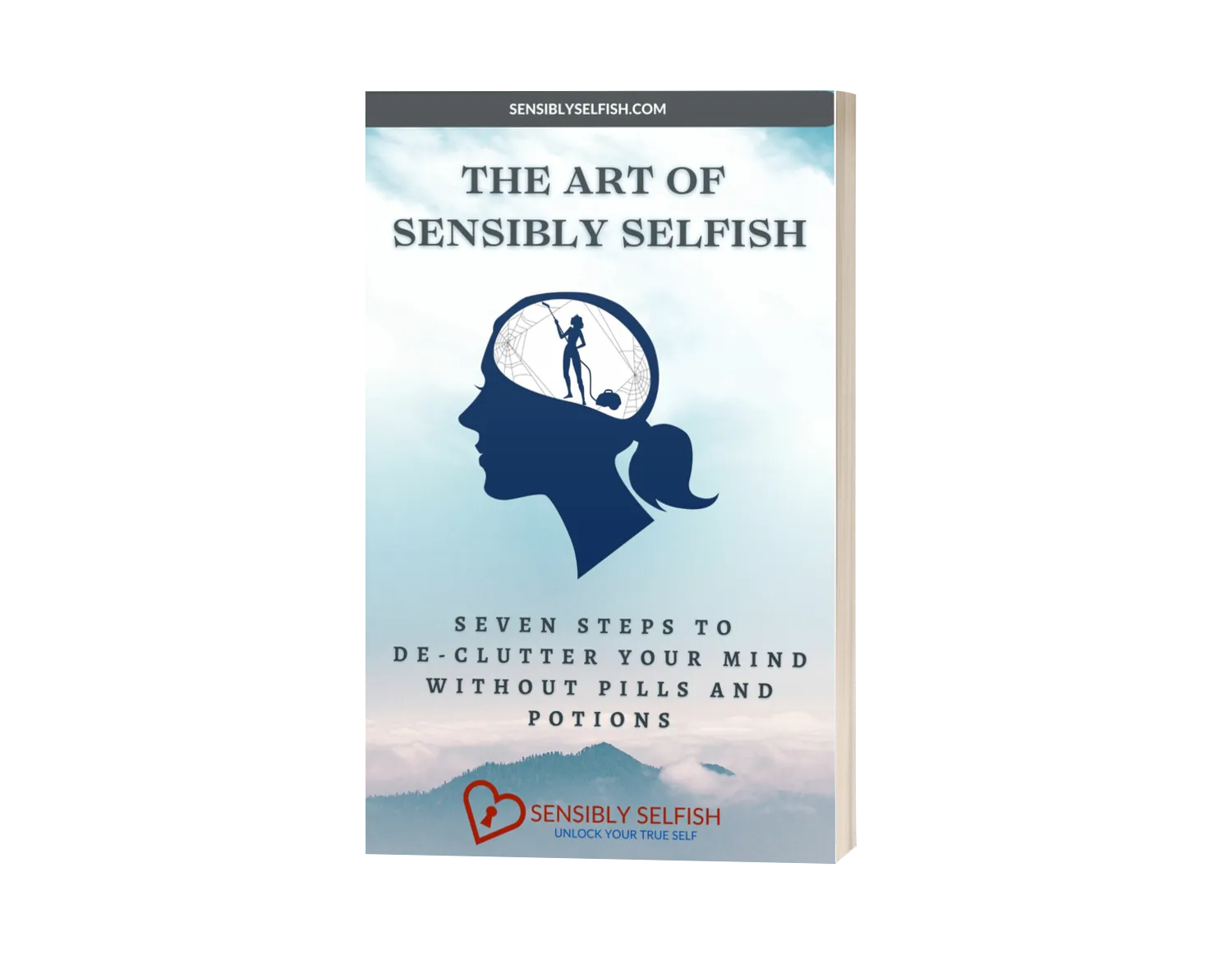Thriving Through Menopausal Brain Fog
Unleashing Your Focus

The recent Sensibly Selfish Embracing Focus post has been getting feedback from the readers. Many are looking for specific help, tips and tricks to focus when suffering from menopausal brain fog.
The menopausal brain haze can be frustrating and challenging, affecting cognitive function and making it difficult to stay focused. If you're going through this experience, you're not alone. Many women encounter menopausal brain fog during their transition. In this blog post, we'll explore effective strategies to help you stay focused and combat the fog.
As you read, be aware that there are links in this post that will take you to even further information. Click on the highlighted word to visit the relevant pages.

Understanding Menopausal Brain Fog
Menopausal brain fog refers to the cognitive difficulties experienced during menopause. Fluctuating hormones, particularly estrogen and progesterone, play a significant role in these challenges. The hormonal changes impact neurotransmitters, resulting in memory lapses, difficulty concentrating, and mental fogginess. Symptoms may vary, but commonly include forgetfulness, trouble finding words, and decreased mental clarity.
Lifestyle Modifications for Improved Focus
Maintaining a healthy lifestyle can significantly enhance your focus and mental clarity during menopausal brain fog. Regular exercise, such as brisk walking or yoga, promotes blood flow to the brain, boosts cognitive function, and reduces brain fog.
Following a Fasting regime and a well-balanced diet rich in fruits, vegetables, whole grains, and lean proteins provide essential nutrients for brain health. Staying hydrated is crucial as dehydration can exacerbate cognitive difficulties.
Read the Sensibly Selfish post on Body Burden that will aid you to understand the lifestyle issues you may be facing and how the chemicals in your environment may be causing brain fog.
Quality sleep is vital for optimal cognitive function, so establish a relaxing bedtime routine and create a sleep-friendly environment. Avoid stimulating activities before bed and limit caffeine intake. Consider implementing relaxation techniques, such as deep breathing or meditation, to promote better sleep and reduce stress.

Cognitive Strategies to Combat Brain Fog
In addition to lifestyle modifications, cognitive strategies can help combat menopausal brain fog. Mindfulness and meditation practices enhance focus, reduce stress, and improve overall cognitive function. Engaging in brain training (using both sides of the brain), knitting, playing a musical instrument, learning a new language or anything that challenges your cognitive abilities and can improve mental clarity.
Creating an organized and structured environment can minimize distractions and enhance concentration. Declutter both your mind and your environment. Utilize calendars, to-do lists, and reminders to keep track of tasks and deadlines. Break down complex tasks into smaller, manageable steps to alleviate cognitive overload.
Seeking Support and Professional Assistance
Navigating menopausal brain fog can be challenging, and seeking support is essential. Share your experience with loved ones to help them understand your needs and provide emotional support. Consider joining support groups where you can connect with others going through similar experiences and exchange coping strategies.
If you find that menopausal brain fog significantly impacts your daily life, consulting healthcare professionals, such as gynecologists or neurologists, can provide valuable guidance and treatment options tailored to your specific needs. They can help determine whether you may need physical intervention.

Self-Care and Stress
Prioritizing self-care is crucial when dealing with menopausal brain fog. Find activities that promote relaxation. Use stress to your advantage. Take breaks throughout the day to recharge and refresh your mind.
Managing stress is vital for optimal cognitive function. Practice effective stress management techniques, such as setting boundaries, saying no when necessary, and engaging in activities that bring you joy. Cultivate a positive mindset and practice self-compassion as you navigate through this phase.
And Simply
Staying focused during menopausal brain fog is possible with the right strategies and support. You can enhance your cognitive function and reduce brain fog by implementing lifestyle modifications, such as exercise, a balanced diet, quality sleep, and cognitive techniques like mindfulness. Whatever you decide to do, take it step-by-step, do not attempt to do all of the above at once or you will actually be creating yet more brain fog! Reach out if you would like further help.









